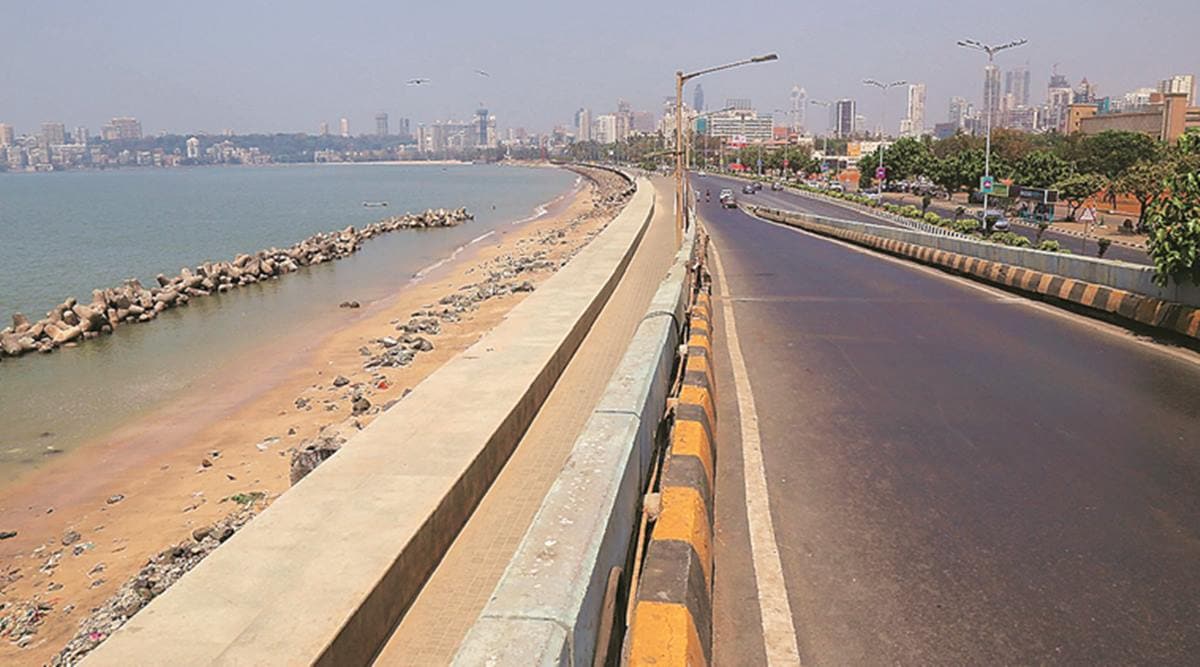 Its urban waterscape is not just defined by its relationship with the coast but also its rivers, fountains and pyaavs, and the many communities entwined with them (File image)
Its urban waterscape is not just defined by its relationship with the coast but also its rivers, fountains and pyaavs, and the many communities entwined with them (File image) FOR A city that was originally a clutch of islands, Mumbai’s association with the sea has always been tense. Its urban waterscape is not just defined by its relationship with the coast but also its rivers, fountains and pyaavs, and the many communities entwined with them. This is the focus of Confluence, a year-long virtual exhibition that kicks off on March 21, ahead of World Water Day.
Confluence is the first programme by Mumbai Water Narratives, an initiative that documents and communicates the city’s rich water history and heritage. “We see it as the beginning of conversations around water in the city,” said Sara Ahmed, founder and lead curator of Living Waters Museum, a virtual repository established in 2017. Ahmed co-founded Mumbai Water Narratives with architects Minaz Ansari and Ipshita Karmakar.
The exhibition will have six thematic galleries, each with a set of connected exhibitions and curatorial notes, many of which will be available in Marathi as well. Overall, the exhibition will take a look at the city’s built heritage, culture and faith, livelihoods and indigenous communities connected to water.
Graphic artist Siddesh Gautam, who goes by the moniker ‘bakeryprasad’ on social media, brings alive the historical relationship between caste and access to water in the wider context of the work of the Pain Haq Samiti. Another exhibit looks at the planned urban development of Navi Mumbai and its relationship with water through a comic-style mode.
The inaugural week of the programme will feature several virtual talks and discussions. Artist Parag Tandel, who is from a community of Kolis in Thane, will share thoughts on a cookbook of dry fish recipes. Tandel had invited women from Koliwada to contribute these recipes that use prawns, ribbon fish, anchovies and, undoubtedly, bombil. Tandel said this book was an archive of his community’s culinary practices as well as an indirect comment on how overfishing had changed the way marine life was exploited. “The fishing net today catches everything, but not everything is edible. Inedible fish are dried and supplied to poultry farms and animal husbandry,” he said.
The founders set the date for the event to also mark a year since the Covid-19 lockdown was enforced in India, where “water was a critical part of the messaging on public hygiene and safety, that is hand-washing,” Ahmed said. One of the exhibits is a GIS map developed by urban designer Abhijit Ekbote, which shows how Covid-19 hotspots coincide with highly populous informal settlements in Mumbai, indicating how access to water was a part of the messaging on Covid-19 precautionary measures.
While its public events have been cancelled in the light of rising Covid-19 cases, Confluence will still retain some of its walks with limited numbers and strict safety protocols. Among these is a “river walk” on March 28, which will take participants through Sanjay Gandhi National Park and Warli villages. The walk is along the Dahisar river, which survives in a city always intent on claiming land from its waterbodies.